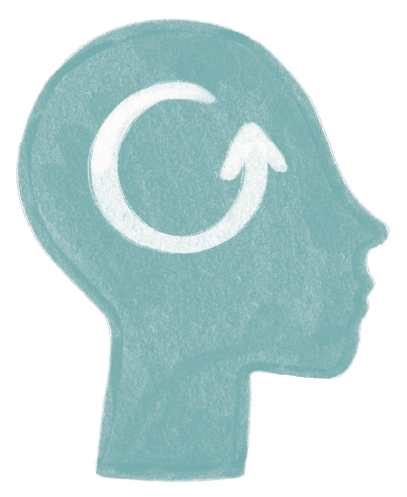When we have HIV it can sometimes affect our brains
Not everyone with HIV has these issues and for those that do it can look and feel quite different from person to person. Some of us might have a bit of trouble thinking or remembering, while others could have more serious problems.

There are two main diagnoses you might get if you have these types of problems: Mild Cognitive Impairment or dementia
Mild Cognitive Impairment causes changes in the brain and problems with memory or thinking that are serious enough to be noticed by you and maybe your friends and family.
It might interrupt your life sometimes and stop you doing some of the things you want to do, but most people can live a fairly normal life.
Mild Cognitive Impairment can sometimes be the early stages of dementia, but not always, and for many, the problems won’t get any worse.
Dementia is an umbrella term for thinking and memory problems that will continue to get worse.
Alzheimer’s disease is the most common cause of dementia, but other types include vascular dementia or Lewy body dementia or frontotemporal dementia.
There are many reasons why people with HIV can have problems with their thinking and memory. It could be one reason or it could be a mixture. For lots of people HIV won’t be the main cause.

HIV without effective treatment can go into our brains. Once there, it can damage our brain cells. HIV can make our brain inflamed, like when you have a sore throat when you’re sick.
This inflammation can hurt the brain. Antiretroviral treatment prevents the brain being damaged in these ways.
Other illnesses and health problems can impact the brain as well as the body. People with HIV can sometimes get other illnesses more easily.
Physical health conditions such as diabetes, cardiovascular disease and hepatitis C can affect brain health. Also the menopause can also affect thinking and memory.
Mental health conditions, like depression or anxiety, are more common in people with HIV. This can also affect thinking and memory. Both mental and physical health conditions can affect your thinking and memory.
Some of the medicines we use to control HIV have side effects and these can sometimes affect the brain.
This can be the case for other medications people have to take to help other health conditions. In particular, sleeping medications, pain medications and other opioids can affecting thinking and memory.
Some lifestyle choices can cause problems with thinking and memory.
Drugs like cannabis, crystal meth, heroin and ketamine can impact brain health. And alcohol and smoking affect the body in a way that can make thinking and remembering harder.
Loneliness, a poor diet and not being active can also have an impact on your brain health.